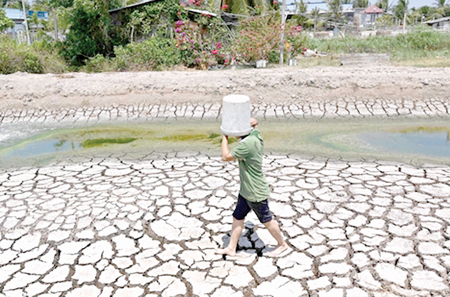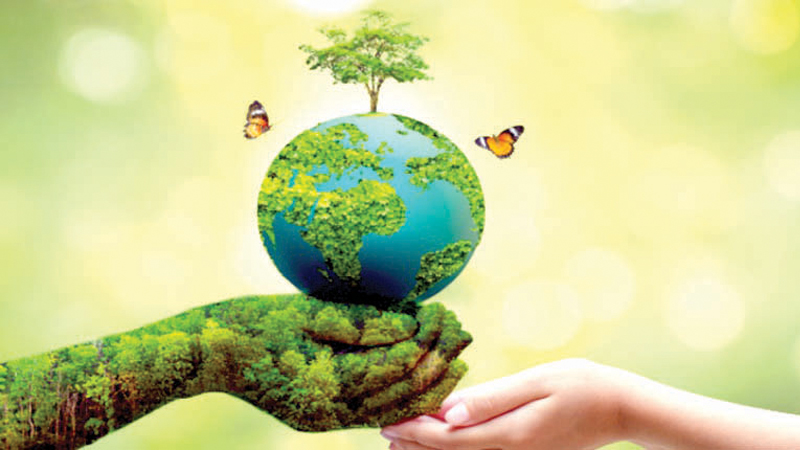Every year on June 17, the world marks the International Day to Combat Desertification and Drought. It is not just a date on the calendar but a wake-up call to pay attention to a crisis quietly growing beneath our feet. The fertile surface soil, which supports all forms of life, is vanishing at an alarming rate.
With every acre that turns to dust, the future of food security, clean water and biodiversity comes under threat. This day highlights the seriousness of the issue and serves as a global reminder that unless people, Governments, and institutions act swiftly, more than just land will be lost.
This annual observance is important because it creates awareness and encourages decisive action. Across continents, millions depend on land for survival. Farmers, herders, and indigenous communities are often the first to feel the impact of desertification and drought. The day allows their stories to be heard and their struggles to be acknowledged. It also pushes policymakers to prioritise sustainable land use, which is essential in the fight against climate change, hunger and poverty.
The theme for the day may change each year, but the core message remains the same: land is life, and it must be protected.
Why action cannot wait
Desertification is not a distant or isolated problem. It affects over 100 countries, with more than a billion people at risk. Yet, the damage often goes unnoticed because it happens slowly. Crops fail. Wells run dry. Trees disappear. Entire landscapes change until they can no longer support life. This is how desertification creeps in — silently, steadily, and sometimes irreversibly. And once the fertile land goes, everything that depends on it follows: agriculture, food chains, water cycles and even the very air we breathe.
 It is not enough to merely talk about restoring the land. Action must be the next step. Climate change is accelerating the pace of droughts and increasing temperatures in already vulnerable regions. But human activity — especially deforestation, overgrazing and poor irrigation — plays an equal part in destroying the land. These problems don’t stay in one corner of the world. They spread. One community’s degraded land may soon affect its neighbour’s rainfall. A failed crop in one region can drive up food prices elsewhere. So, the issue is global, and it demands a global response.
It is not enough to merely talk about restoring the land. Action must be the next step. Climate change is accelerating the pace of droughts and increasing temperatures in already vulnerable regions. But human activity — especially deforestation, overgrazing and poor irrigation — plays an equal part in destroying the land. These problems don’t stay in one corner of the world. They spread. One community’s degraded land may soon affect its neighbour’s rainfall. A failed crop in one region can drive up food prices elsewhere. So, the issue is global, and it demands a global response.
Forests are more than just trees. They are the lungs of the Earth, cleaning the air, cooling the planet, and keeping the soil alive. In forests, water cycles are balanced, and biodiversity thrives. From the deepest Amazon rainforests to dry woodlands in Africa and mangroves along tropical coastlines, these ecosystems give more than they take. They protect watersheds, store carbon and house thousands of species — many of which are still unknown to science. Forests even shape cultures and beliefs, offering inspiration, healing and spiritual calm to those who live near them.
When forests vanish, the soil beneath becomes vulnerable. Without roots to hold it together, rainwater washes away the topsoil. Without shade, the ground dries up. This is how fertile regions turn into deserts. The beauty of a thriving forest lies not only in its green canopy but in what it quietly provides every day — stability, balance and resilience. To combat desertification, forest protection must be central. Every tree saved, planted, or protected is a step away from degradation and a step closer to recovery.
The power of collective action
One person alone cannot stop desertification. But one person, multiplied by thousands and millions, can create a force powerful enough to change the future. Communities in many parts of the world are already proving this. In the Sahel region of Africa, local farmers have revived dry lands using ancient water-harvesting techniques.
In India, volunteers have planted forests where once there was only dust. Across Latin America, reforestation projects have turned abandoned farmland into vibrant ecosystems. These are not stories of Governments. These are stories of the people who chose to act.
Collective action means every sector must play a role. Governments need to pass and enforce laws that protect land. Corporations must move away from practices that exhaust soil.
Schools must teach children that land is not just ground — it is a living part of the Earth’s system. Urban dwellers, too, have responsibilities. Even in cities, people can reduce food waste, support sustainable farming and use water more wisely. NGOs, scientists, artists, and media workers all have a part to play. The land may belong to a country, but its health is everyone’s responsibility.
The way forward
To reverse land degradation, the world needs clear goals and steady efforts. The United Nations has already called for “land degradation neutrality” — a state where the amount of healthy land remains stable or increases, even as development continues. This can be achieved through better farming methods, conservation of water and policies that support regeneration instead of extraction. Financial support must flow to those who protect land rather than destroy it. Restoring land is not only cheaper than dealing with the damage later — it also creates jobs, improves health and strengthens communities.
On this international day, it is also important to remember that land restoration is not just about science or policy. It is also about hope. A seed planted in dry soil may seem pointless. But with care and patience, it can grow. The same goes for degraded land. With enough hands, enough commitment and enough time, it can be brought back to life. That is the spirit of this day — not despair, but determination.
Desertification is not someone else’s problem. It is everyone’s challenge. The land we lose today cannot easily be reclaimed tomorrow. But if we choose wisely now, if we act together, there is still time to turn the tide. Forests can return. Soil can breathe again. Communities can thrive. The International Day to Combat Desertification and Drought is a reminder that the Earth’s skin is cracking — but healing is possible. What matters is whether we care enough to begin.









